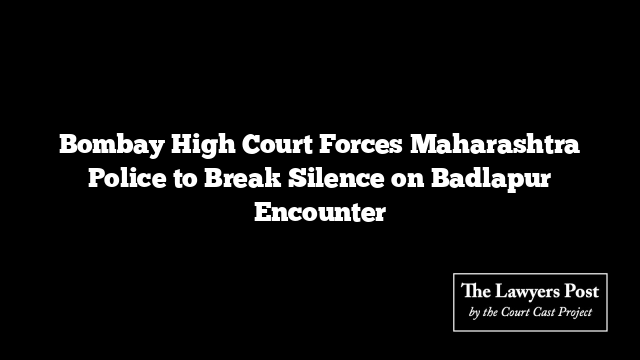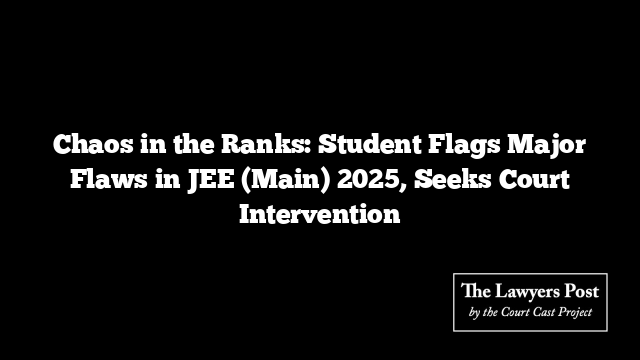Under the sharp glare of the Bombay High Court, Maharashtra Police finally buckled on Wednesday, promising to register an FIR by May 3 in the controversial death of Akshay Shinde—the accused in the Badlapur sexual assault case who was killed in what’s now alleged to be a fake encounter.
The assurance didn’t come freely. It arrived only after the Court delivered a blistering critique of the State’s foot-dragging, questioning why clear directives had been ignored for so long.
The Special Investigation Team (SIT), set up by the Court earlier this month, announced it would nominate Police Inspector Mangesh Desai from Mumbai’s Crime Branch as the informant for the FIR. Only after this commitment did Justices Revati Mohite-Dere and Neela Gokhale allow the SIT to retrieve sealed documents from the court’s registry—documents that could shake the very foundation of the State’s version of events.
The magisterial inquiry had already pointed a damning finger at five police officers for their role in Shinde’s death. Yet, despite this explosive finding, the State seemed unwilling to lift a finger without first sifting through the magistrate’s sealed files—a stance that drew incredulous disbelief from the Bench.
“Can you even register an FIR based on your own statements?” Justice Mohite-Dere demanded. “You must apply your mind. The documents are for investigation, not for filing an FIR.”
The courtroom tension grew heavier as the Public Prosecutor tried to defend the inaction, claiming an officer’s “satisfaction” was essential before acting under Section 154 of the Criminal Procedure Code. The Bench wasn’t buying it.
“What if tomorrow, the father says he withdraws the petition?” the Court challenged. “Will you just walk away from a death? Is that what the rule of law means to you?”
Justice Mohite-Dere made it crystal clear: the police don’t need someone waving a complaint in their face to act when a cognizable offense is staring them down. Independent action, the Court stressed, is a duty—not a favor.
When the State hinted it couldn’t move forward without studying the magistrate’s sealed materials, the judges scoffed. “You’re supposed to investigate based on witness statements, not hang your hat on the magistrate’s file.”
Only after repeated warnings—and the not-so-veiled threat of contempt—did the State finally fold, vowing to file the FIR.
The Court then laid out strict orders: the court’s Registrar will unseal the magisterial inquiry documents in the presence of an SIT officer, a prosecutor’s representative, and someone from the Amicus Curiae team. Every piece of paper, every byte of evidence, must be copied and handed over to the SIT. The originals, the Court added, must also be forwarded to the Judicial Commission keeping an eagle eye on this case.
In a country where encounter killings often vanish into silence, this case has now been yanked back into the harsh light—and the system has been warned: accountability isn’t optional.





